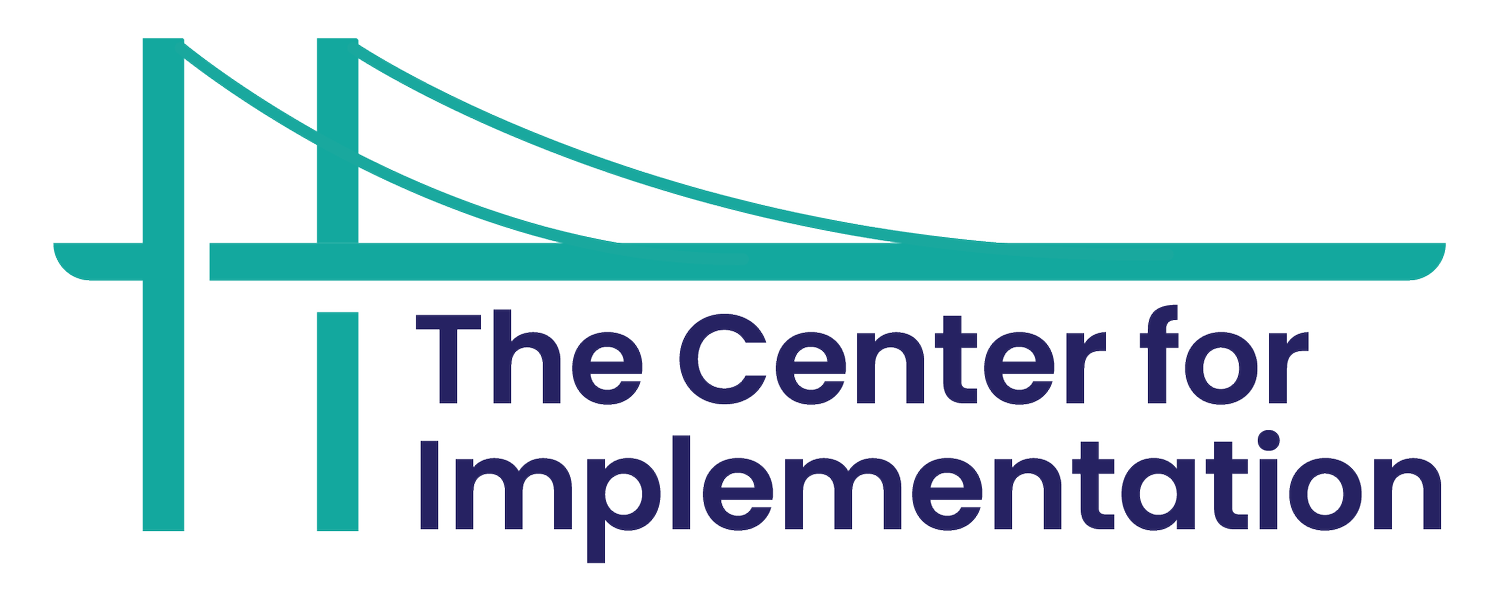Dynamic Implementation Teams: Figuring Out What Works When Working Together
By Dr. Sobia Khan, Director of Implementation
4-min read
A significant focus of our work recently has been on the nature of implementation as a social process. Much of the work we do to implement our initiatives is done with people, and often, one of the first pieces of advice to getting started on an initiative is to build an implementation team. This may sound intuitive or easy, but we have learned some lessons about what makes an implementation team effective that we thought might be helpful to others on an implementation journey.
Knowledge, skills, and competencies of implementation teams
The first thing to consider is what makes an implementation team different from other teams in the first place. The purpose of bringing an implementation team together is to spearhead and deliver change strategies that support the uptake of the THING you are implementing. Using an existing team (if you have one) is a great starting place, but whether you are building a team or using a current one, it helps to take stock of the team makeup and the mixed skill set of the team. The Collaborative for Implementation Practice developed excellent guidance for implementation teams. Some key highlights of their guidance include:
Having a small but mighty team;
Including expertise in the THING that you are implementing, good implementation methods and principles, and the context in which you are implementing;
Ensuring that people involved have dedicated time for the “hands-on” work of implementing; and
Having diversity of voice and experience.
You can refer to our newly updated core competencies if you want to think concretely about what your team will do and what skills and knowledge are needed to accomplish team goals. Note that these team considerations ring true whether you are a team within one department of an organization, an interdepartmental team across a whole organization, or an inter-organizational team across a community or larger system.
What are the qualities of an implementation team?
In addition to considering what an implementation team does, it also helps to consider the general qualities of a well-functioning team. Implementation teams work closely with one another and make difficult decisions together; therefore, it is paramount to have positive relationships that further collective goals.
There are many ways to think about how to foster these positive relationships. Building relationships, described in our Relational Pathway, helps you be specific about what you hope to accomplish together and how you need to interact with one another (e.g., virtual or in person, frequency of meeting, nature of interactions) to reach your goals.
It is valuable to think about governance (e.g., leadership, conflict resolution, decision-making) upfront so that assumptions aren’t made about who is leading what and that there is a common understanding of when decisions are made and why.
Monitoring your team's performance and progress and adjusting your team dynamics is not a part of the process that people tend to focus on. But just like other relationships, you assess what is working and not working and come up with strategies to address opportunities for improvement. The same is true for implementation teams. Teamwork can be strengthened when the opportunities to reflect on and strengthen it are maximized.
Trust and power in implementation teams
Relationships can also be thought of as the things that make them stronger or the glue that holds them together – trust and power. There are clear ways in which trust and power can make or break the parts of the process described above. For example, in determining how people should work together, it is important to establish open dialogue and psychological safety and to continue building trust through a collective vision and goals and through frequent and meaningful interaction.
When thinking about governance, having distributed forms of leadership can balance power and establishing transparent processes for decision-making can improve visible power and can also help people establish more trust in the team overall. Our Cultiv8 tool can help implementation teams select strategies to ensure that trusting relationships are established, and power is considered.
What are some other considerations?
Focus on social cohesion as a priority. Social cohesion means being connected, having solidarity, feeling like you belong, and providing one another with emotional support. These are the conditions for high team performance. You can boost social cohesion through identity building, sharing norms and values, and promoting personal connection and shared team experiences. This article is a great read.
Several years ago, researchers identified characteristics of teams that survive in uncertain and complex contexts (like those implementing initiatives) and found that in addition to the characteristics already discussed above, mindful teams (engaged in the present, seek novelty, open to new ideas), heedful (sensitive to what needs to be done and how they contribute to it), respectfully interact, and use different communication methods for different purposes tend to be the most effective.
There is a lot that we are still learning about teams and relationships in general. One of the things that is true that spending time building a good implementation team can help make implementation more successful in the long run.
This article was featured in our monthly Implementation in Action bulletin! Want to receive our next issue? Subscribe here.

